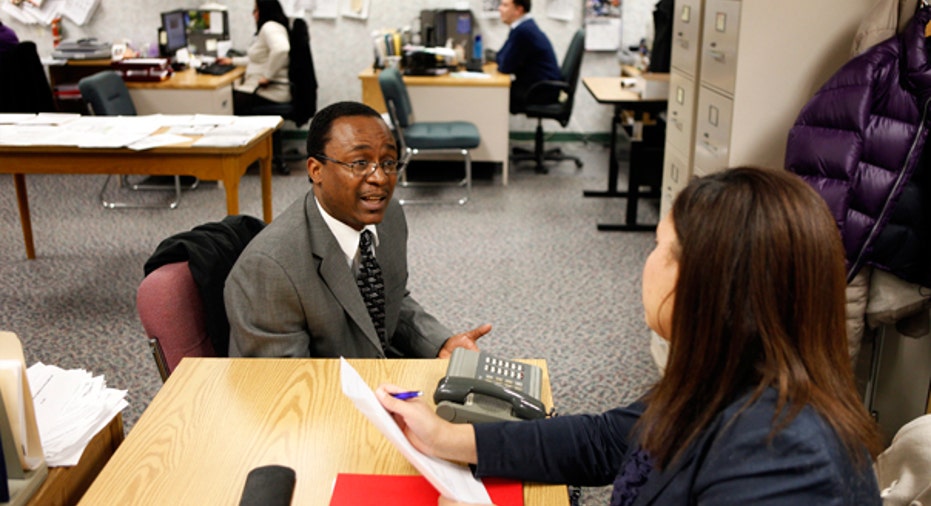Don’t Go Down Like the Titanic in Your Next Job Interview

Over the last few years, many have compared the U.S. economy to the Titanic – headed straight for an iceberg – and ultimately disaster. But despite all of the ups and downs, business leaders remain optimistic about the economic prospects in the year ahead.
In a new survey by Chase Commercial Banking, more than half of the senior financial decision makers polled at 1,000 U.S. companies said they plan to hire more workers.
Great news for current or soon-to-be job hunters. But are you ready for the big interview?
Advance preparation is essential, says Sue Edelstein, president and founder of The Edelstein Group, an executive search firm specializing in placements for the advertising industry.
Without putting the time and effort into research and rehearsal, Edelstein warns you’re likely to have a Titanic moment—and go down with the ship during the interview process. “You are judged in a matter a seconds,” she says. “Success takes work.”
So in honor of the 100th anniversary of the Titanic disaster, here’s a life jacket: Tips to survive and thrive in the job interview based on my firm’s 3V Model for Effective Communication. You can master the visual, vocal and verbal dynamics that will keep you afloat.
VISUALS
Dress properly for the situation. You can never send the wrong message with professional-business style, advises Edelstein. Research the prospective employer’s dress code. Even if casual is the norm, skip the flip flops and don a business casual wardrobe. Bottom line: When in doubt, dress in business attire, whether the interview is face-to-face or by Skype.
Turn off your cell phone and put it away. As soon as you walk into the building—even the reception area – turn off your phone. Remember, from the minute you walk in the door you are being judged—by a receptionist, a security guard and workers in cubicles. There’s nothing more important than fully being in the moment of your interview process, so cut the umbilical cord to your smartphone.
Stay engaged. Non-verbal cues will be immediately picked up. Maintain direct eye contact with the interviewer and lean forward as you answer questions. If you are interviewing by phone, close curtains or shades to keep your eyes from wandering to see outside of a window. Find a photo from LinkedIn of your interviewer—print it out and place it in front of you. It will help you to visualize having a direct conversation.
VOCALS
Project confidence in your tone. Be clear, direct and humble – and always avoid being on the defensive. “If you’ve had three jobs in the last five years, the interviewer has a right to ask why. Don’t get defensive in your tone or posture,” says Edelstein. Rehearse what you say and how you say it in advance so that you answer calmly. Lean forward, comfortably fold your hands and confidently explain key factors that triggered the changes. Tell your story in a way that puts the potential employer at ease.
For phone interviews, find a landline. Phone interviews are best supported by landlines. Dropped calls—due to spotty cell service--translate to lost time and disrupts your train of thought. If you don’t have landline access, plan ahead—and test your cell service and your audibility with a friend from the location you plan on using for the actual interview.
Trust is a big communicator. Managers want to hire someone they believe they can trust. Harness your tone to convey pride and passion when talking about past experiences and accomplishments.
VERBALS
Nail your “I am…” statement. It’s inevitable. One of the first questions that you’ll be asked is, “Tell me about yourself.” Your response—your “I am…” statement—needs to succinctly communicate the value you bring to an employer. It’s your elevator pitch. And it’s got to WOW!
Never badmouth a current or past employer. If an employer asks why you want to leave your current job – keep your response positive. For example, comment that you’ve made great contributions, learned a tremendous amount and enjoyed your experience, but promotional opportunities are currently limited and you’re ready to grow your career. “Don’t talk about how bad things have gotten at your current job,” warns Edelstein. “You don’t want to play the victim.”
Rehearse your message. Ask a trusted friend or valued colleague to conduct a mock interview with you—and rate your performance. You need constructive feedback about nervous twitches, permeating ‘ums’ and flat responses. Use the 3V Communication Model as a guide and rehearse several times.
Finally, ask questions. This communicates interest and preparedness – and shows the interviewer that you did your research on the company and the position. Ask “Who do you envision as the ideal candidate for this position?” Or, “What do you like about working for this company?”
“By engaging the interviewer to give his or her perspective, you are casting an impression that you are genuinely interested,” Edelstein adds.
What’s the toughest interview question you’ve faced? Weigh-in on our quick online poll.
Linda Dulye is internationally recognized for helping many companies go spectator free. A former communications leader for GE and Allied Signal, Linda established Dulye & Co. in 1998 with a practical, process-driven approach for improving communications and collaboration through an engaged workforce— a formidable competitive advantage, that she calls a Spectator-Free Workplace™.



















